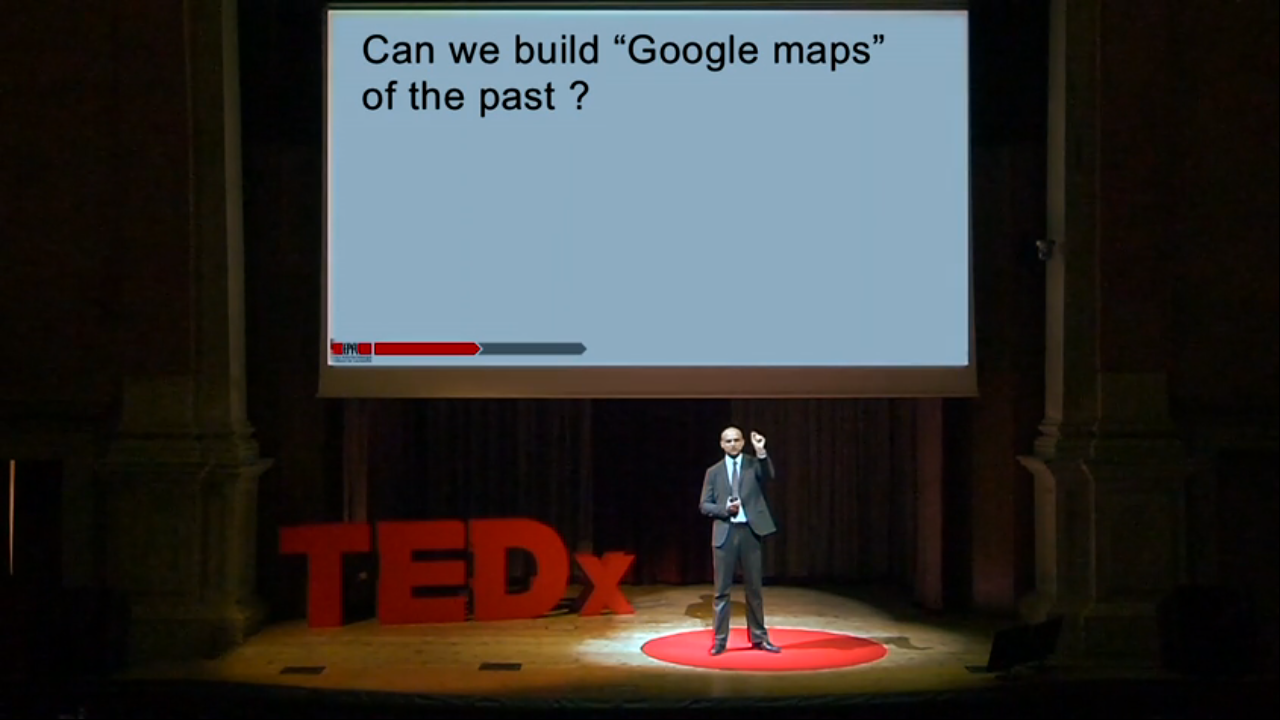Many people believe that privacy is a thing of the past. It’s true that our networked world makes it harder to keep secrets. But there are many things you can do to protect your privacy online. This Huffington Post article clearly outlines some quick fixes you can make in a few minutes.
Category: Chapter 7 Database Applications and Privacy Implications
The digital technology explosion of the last decade has produced many new threats to our privacy, including some unexpected ones. In this short TED talk, Catherine Crump explains how the automatic license plate scanners used by police might have disastrous ramifications for law-abiding citizens.
[ted id=2149]
 In the last few years we’ve become accustomed to Google Earth and similar apps that give us the power to “go” almost anywhere in a matter of seconds. Massive geographical databases put the world at our fingertips. In this TED talk Frederic Kaplan describes a research project that adds another dimension—time—to our search capabilities. How long will it be before your phone is a digital time machine?
In the last few years we’ve become accustomed to Google Earth and similar apps that give us the power to “go” almost anywhere in a matter of seconds. Massive geographical databases put the world at our fingertips. In this TED talk Frederic Kaplan describes a research project that adds another dimension—time—to our search capabilities. How long will it be before your phone is a digital time machine?
ted.com/talks/frederic_kaplan_how_i_built_an_information_time_machine.html
Most of us have an uneasy relationship with big databases: We take advantage of the convenience and freedom they bring to us, but we don’t really like the fact that they know so much about us. Singer/songwriter Vienna Teng captures the tension that exists between those contradictory feelings in her beautiful, slightly chilling Hymn of Acxiom. We’ve included a YouTube video with the song’s recording as well as links to an article telling the story behind the song, and a page with lyrics. All three are highly recommended.
Vienna Teng Sings about Surveillance in ‘Hymn of Acxiom’
Lyrics for ‘Hymn of Acxiom’
Key words: databases, big data, privacy, surveillance
Icon: crosscurrents
 Edward Snowden made a decision that changed the world. By leaking top secret government documents to the press, he revealed that US surveillance of private and public citizins goes far beyond what most of us had previously imagined. Because of those leaks, people all around the world are asking important questions about the balance between privacy and security in a free society. In a chilling statement to the BBC, Snowden claimed that he’d accomplished his mission by raising those questions. What do you think?
Edward Snowden made a decision that changed the world. By leaking top secret government documents to the press, he revealed that US surveillance of private and public citizins goes far beyond what most of us had previously imagined. Because of those leaks, people all around the world are asking important questions about the balance between privacy and security in a free society. In a chilling statement to the BBC, Snowden claimed that he’d accomplished his mission by raising those questions. What do you think?
theguardian.com/world/2013/dec/24/edward-snowden-channel-4-christmas-day-message
 When Apple released the iPhone, the world changed. People were carrying powerful computers in their pockets and purses. Developers released a bevy of creative apps to harness that always-available computing power. Today it’s hard to imagine a world without smart phones. Could Google Glass, the wear-on-your-face computer from Google, be the beginning of the next revolution in personal computing? This short NPR story explains how early adopters plan to use their prototype high-tech specs.
When Apple released the iPhone, the world changed. People were carrying powerful computers in their pockets and purses. Developers released a bevy of creative apps to harness that always-available computing power. Today it’s hard to imagine a world without smart phones. Could Google Glass, the wear-on-your-face computer from Google, be the beginning of the next revolution in personal computing? This short NPR story explains how early adopters plan to use their prototype high-tech specs.
npr.org/blogs/alltechconsidered/2013/04/17/177557810/Seeing-The-World-Through-Google-Colored-Glasses
Of course, not everyone views Google Glass through such rose-colored lenses. This Saturday Night Live skit mocks the idea that Google Glass can be used discreetly; other detractors question our need to become even more dependent on our technology.
mashable.com/2013/05/05/snl-google-glass-parody/
More and more, we’re living in a data-driven world. In this excellent little piece that aired recently on NPR’s Fresh Air, Geoff Nunberg gives one of the clearest explanations we’ve seen of what Big Data is and why it’s important to all of us.
http://www.npr.org/2012/12/20/167702665/geoff-nunbergs-word-of-the-year-big-data
IBM’s Watson, the famous artificial-intelligence system that became a quiz show champ, is now poised to transform the fields of medicine, finance, education, and more. In some ways Watson is an industrial-strength version of Siri, the personal assistant built into iPhones. Is Watson leading us into a whole new era of cognitive computing? This fascinating Fast Company article puts Watson in the context of today’s data-driven world and speculates on a future that’s much bigger than talking smart phones.
fastcompany.com/3001739/ibms-watson-learning-its-way-saving-lives
The information explosion raises important questions about the free flow of information versus the threat to personal privacy. These two TED Talks present cases for more open information in government and medicine. Heather Brooke uses technology and old-fashioned hard work to expose government corruption; John Wilbanks argues that more medical information sharing is good for all of us. Whether you agree or not, you’ll likely find their stories interesting and thought provoking.
ted.com/talks/heather_brooke_my_battle_to_expose_government_corruption.html
ted.com/talks/john_wilbanks_let_s_pool_our_medical_data.html
The Internet teems with data waiting to be analyzed by companies, government, and savvy individuals. Big data has become an industry buzzword as more businesses and governments find ways to tap into the mountains of data our digital devices produce every day. Photographer Rick Smolan’s latest project is to make big data—and its impact on us—visible. This Huffington Post article describes this crowdsourced work of art and includes a direct link to The Human Face of Big Data.
huffingtonpost.com/2012/09/25/rick-smolan-the-human-face-of-big-data_n_1912641.html